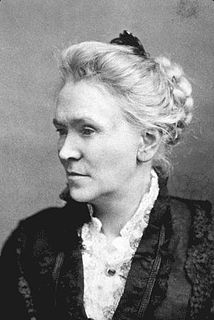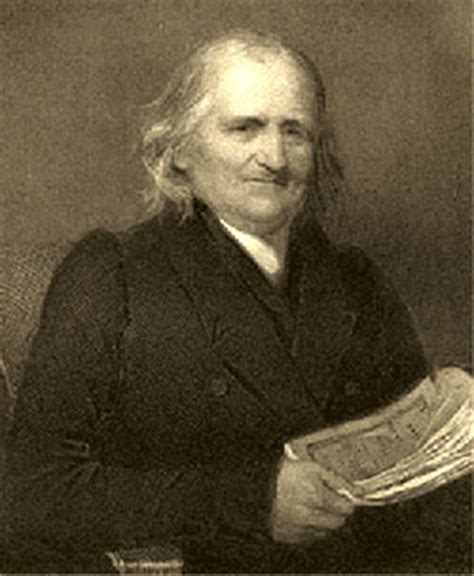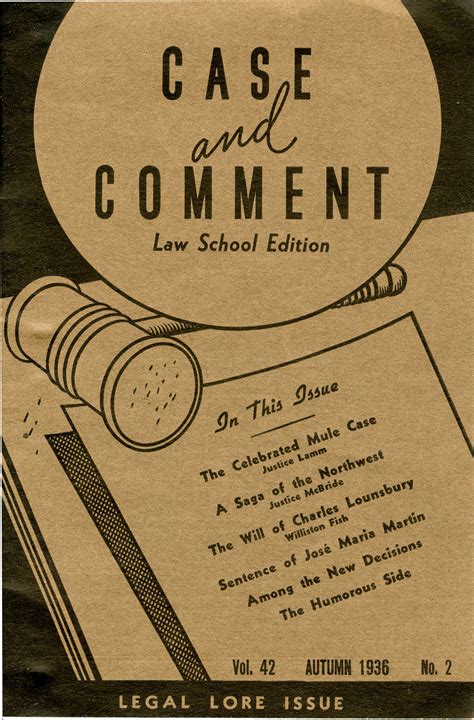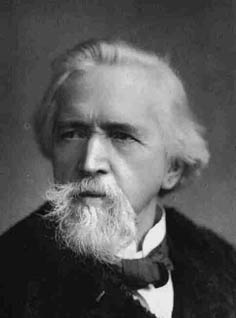Top 659 Custom Quotes & Sayings - Page 11
Explore popular Custom quotes.
Last updated on November 17, 2024.
This is why God created so many different religions: to be training grounds to make a path for every people, culture, custom, and tradition. Religions polish people to be qualified to enter the region of the original homeland. Because of humankind's many different cultural backgrounds, God sought and set the standard of comparison and has been leading the way toward one unified religious world.
In one of the most brilliant papers in the English language Hume made it clear that what we speak of as 'causality' is nothing more than the phenomenon of repetition. When we mix sulphur with saltpeter and charcoal we always get gunpowder. This is true of every event subsumed by a causal law in other words, everything which can be called scientific knowledge. "It is custom which rules ," Hume said, and in that one sentence undermined both science and philosophy .
I DECLARE I am special and extraordinary. I am not average! I have been custom-made. I am one of a kind. Of all the things God created, what He is the most proud of is me. I am His masterpiece, his most prized possession. I will keep my head held high, knowing I am a child of the most high God, made in his very image. This is my declaration.
If we go back to the beginning, we shall find that ignorance and fear created the gods; that fancy, enthusiasm, or deceit adorned them; that weakness worships them; that credulity preserves them and that custom, respect and tyranny support them in order to make the blindness of men serve their own interests. If the ignorance of nature gave birth to gods, the knowledge of nature is calculated to destroy them.
There is always in the healthy mind an obscure prompting that religion teaches us rather to dig than to climb; that if we could once understand the common clay of earth we should understand everything. Similarly, we have the sentiment that if we could destroy custom at a blow and see the stars as a child sees them, we should need no other apocalypse. This is the great truth which has always lain at the back of baby-worship, and which will support it to the end.
Old customs are easy to forget with the flashing of events in our lives. Easy to forget, like the heavy clothing we once wore to survive the winters. It is an old custom, the handing down of things. A good knife, a well-made pipe, a heavy robe. Tradition falls prey to constant change, and creativity becomes so revered that the past is a relic, only to be admired. But in this coat, I was held to the earth, pulled to the past by its weight.
On coming to the house, they (the Magi), saw the child with his mother Mary, and they bowed down and worshiped him. (Matthew 2:11) [This] adoration, too, was not the same as the worship of God. In my opinion they did not yet recognize him as God, but they acted in keeping with the custom mentioned in Scripture, according to which Kings and important people were worshiped; this did not mean more than falling down before them at their feet and honoring them.
Theatres, actors, critics and public are interlocked in a machine that creaks but never stops. There is always a new season in hand and we are to busy to ask the only vital question which measures the whole structure. Why theatre at all? What for? Is it an anachronism, a superannuated oddity? Surviving like an old monument or a quaint custom? Why do we applaud and what? Has the stage a real place in our lives? What function can it have? What could it serve? What could it explore? What are its special properties?
The old order changeth yielding place to new And God fulfills himself in many ways Lest one good custom should corrupt the world. Comfort thyself: what comfort is in me I have lived my life and that which I have done May he within himself make pure but thou If thou shouldst never see my face again Pray for my soul. More things are wrought by prayer than this world dreams of.
The notion that "applied" knowledge is somehow less worthy than "pure" knowledge, was natural to a society in which all useful work was performed by slaves and serfs, and in which industry was controlled by the models set by custom rather than by intelligence. Science, or the highest knowing, was then identified with pure theorizing, apart from all application in the uses of life; and knowledge relating to useful arts suffered the stigma attaching to the classes who engaged in them.
Also in contemporary Western society the union with the group is the prevalent way of overcoming separateness. It is a union which the individual self disappears to a large extent, and where the aim is to belong to the heard. If I am like everybody else, if I have no feeling or thoughts which make me different, if I conform in custom, dress, ideas, to the pattern of the group, I am saved: saved from the frightening experience of aloneness.
Book burning is a charming old custom, hallowed by antiquity. It has been practiced for centuries by fascists, communists, atheists, school children, rival authors, and tired librarians. Like everything of importance since the invention of the cloak and the shroud, its origins are cloaked in mystery and shrouded in secrecy. Some scholars believe that the first instance of book burning occurred in the Middle Ages, when a monk was trying to illuminate a manuscript. All agree that book burning was almost non-existent during the period when books were made of stone.
Christianity, just as much as Islam, teaches children that unquestioned faith is a virtue. You don't have to make the case for what you believe. If somebody announces that it is part of his faith, the rest of society, whether of the same faith, or another, or of none, is obliged, by ingrained custom, to "respect" it without question; respect it until the day it manifests itself in a horrible massacre like the destruction of the World Trade Center, or the London or Madrid bombings.
How do you get on with your father ' Beleth asked. 'Very well ' Pyrgus answered loyally although it was far from the truth. 'I ate mine ' Beleth told him. 'He got old and feeble and useless but he wanted to hold on to power. So I took steps. Tasted disgusting - stringy tough smelly ... you know how fathers are - but it's the custom here. You're supposed to absorb the essence that way. Rank superstition of course but well ... tradition.
The zest for life of those unusual men and women who make a great zealous success of living is due more often in good part to the craftiness and pertinacity with which they manage to overlook the misery of others. You can watch them watch life beat the stuffing out of the faces of their friends and acquaintances, although they themselves seem to outwit the dense delays of social custom, the tedious tick-tock of bureaucratic obfuscation, accepting loss and age and change and disappointment without suffering punctures in their stomach lining.
The point of life that I'm currently at is a 'me right now' type of attitude. I am 37 years-old, my son is in college and my daughter is in high school. I'm becoming okay with me. I can't live life as an artist or person being someone that someone else has tried to mold me into. I'm not going to put on a dress that's two sizes too small. I'm custom making my own clothes so that they'll never fit anyone else if you know what I mean.
To see the convulsions, agonies and tortures of a poor fellow-creature, whom they cannot restore nor recompense, dying to gratify luxury and tickle callous and rank organs, must require a rocky heart, and a great degree of cruelty and ferocity. I cannot find any great difference between feeding on human flesh and feeding on animal flesh, except custom and practice.
Thus, cases of injustice, and oppression, and tyranny, and the most extravagant bigotry, are in constant occurrence among us every day. It is the custom to trumpet forth much wonder and astonishment at the chief actors therein setting at defiance so completely the opinion of the world; but there is no greater fallacy; it is precisely because they do consult the opinion of their own little world that such things take place at all, and strike the great world dumb with amazement.
I think there should be some way to find some kind of reasonable accommodation that allows the state to continue to say, you know, that women's rights supersede any kind of a cultural custom that's oppressive to women, but also potentially allows a woman to take the oath, I don't know, in a separate room. It would be up to the court to find some kind of cultural accommodation.
From early Colonial days, sex life in America had been based on the custom of men supporting women. That situation reached its heyday in the Twenties when it was easy for any dabbler in stocks to flaunt his manhood by lavishing an unearned income on girls. But with the stock-market crash, men were hard put even to keep their wives, let alone spend money on sex outside the home. The adjustment was much easier on women than on men, who jumped out of windows in droves, whereas I can't recall a single headline that read: KEPT GIRL LEAPS FROM LOVE NEST.
Attempts to limit female mobility by hampering locomotion are ancient and almost universal. The foot-binding of upper-class Chinese girls and the Nigerian custom of loading women's legs with pounds of heavy brass wire are extreme examples, but all over the world similar stratagems have been employed to make sure that once you have caught a woman she cannot run away, and even if she stays around she cannot keep up with you. ... Literally as well as figuratively modern women's shoes are what keeps Samantha from running as fast as Sammy.
There is not much talking now. A silence falls upon them all. This is no time to talk of hedges and fields, or the beauties of any country. Sadness and fear and hate, how they well up in the heart and mind, whenever one opens pages of these messengers of doom. Cry for the broken tribe, for the law and the custom that is gone. Aye, and cry aloud for the man who is dead, for the woman and children bereaved. Cry, the beloved country, these things are not yet at an end. The sun pours down on the earth, on the lovely land that man cannot enjoy. He knows only the fear of his heart.
Ogbuef Ezedudu,who was the oldest man in the village, was telling two other men when they came to visit him that the punishment for breaking the Peace of Ani had become very mild in their clan. "It has not always been so," he said. "My father told me that he had been told that in the past a man who broke the peace was dragged on the ground through the village until he died. but after a while this custom was stopped because it spoiled the peace which it was meant to preserve.
The daily disappearance and the subsequent rise of the sun appeared to many of the ancients as a true resurrection; thus, while the east came to be regarded as the source of light and warmth, happiness and glory, the west was associated with darkness and chill, decay and death. This led to the custom of burying the dead so as to face the east when they rose again, and of building temples and shrines with an opening toward the east. To effect this, Vitruvius, two thousand years ago, gave precise rules, which are still followed by Christian architects.
It is quite useless to declare that all men are born free if you deny that they are born good . Guarantee a man's goodness and his liberty will take care of itself. To guarantee his freedom on condition that you approve of his moral character is formally to abolish all freedom whatsoever, as every man's liberty is at the mercy of a moral indictment which any fool can trump up against everyone who violates custom, whether as a prophet or as a rascal.
We manage to swallow flesh only because we do not think of the cruel and sinful thing that we do. There are many crimes which are the creation of man himself, the wrongfulness of which is put down to their divergence from habit, custom, or tradition. But cruelty is not of these. It is a fundamental sin, and admits of no argument or nice distinctions. If only we do not allow our heart to grow callous, its protest against cruelty is always clearly heard; and yet we go on perpetrating cruelties easily, merrily, all of us - in fact, anyone who does not join in is dubbed a crank.
At the gates of the forest, the surprised man of the world is forced to leave his city estimates of great and small, wise and foolish. The knapsack of custom falls off his back with the first step he makes into these precincts. Here is sanctity which shames our religions, and reality which discredits our heroes. Here we find Nature to be the circumstance which dwarfs every other circumstance, and judges like a god all men that come to her.
Be not too slow in the breaking of a sinful custom; a quick, courageous resolution is better than a gradual deliberation; in such a combat he is the bravest soldier that lays about him without fear or wit. Wit pleads, fear disheartens; he that would kill Hydra had better strike off one neck than five heads: fell the tree, and the branches are soon cut off.
Trying every day to tell the truth is hard. There are harder things, of course - arguably, living with lies and meaninglessness, living in despair is harder, but it's hardship disguised as luxury and easier perhaps to grow accustomed to, since truth is usually the enemy of custom. There are harder things than writing, being President Obama, for instance, and having to deal with House Republicans, or trying to fix the leak at the Fukushima reactor, these are harder, but writing is hard.
I am not of the opinion generally entertained in this country [England], that man lives by Greek and Latin alone; that is, by knowing a great many words of two dead languages, which nobody living knows perfectly, and which are of no use in the common intercourse of life. Useful knowledge, in my opinion, consists of modern languages, history, and geography; some Latin may be thrown into the bargain, in compliance with custom, and for closet amusement.
I used a fifties Les Paul custom on most of the stuff. I also used a Strat, a newer Strat. I had a million guitars in there but I used the Strat & the Les Paul in just about everything. There were a lot of different amp choices, I was working with a pro tools plug-in which is like an amplifier stimulator. The possibilities with something like that are just endless.
What it 't to us, if taxes rise or fall,
Thanks to our fortune, we pay none at all.
Let muckworms who in dirty acres deal,
Lament those hardships which we cannot feel,
His grace who smarts, may bellow if he please,
But must I bellow too, who sit at ease?
By custom safe, the poets' numbers flow,
Free as the light and air some years ago.
No statesman e'er will find it worth his pains
To tax our labours, and excise our brains.
Burthens like these with earthly buildings bear,
No tributes laid on castles in the air.
I agree with O'Toole that custom and comfort are impediments to change. However, it is important to recognize that resistance to change is logical as well. The new "change masters" literature seems to take change as the norm. It isn't. Humans naturally see change as risky because it is risky, just as mutations in genes are mostly destructive. You would not want to go to work were everything changed every week! The phone system, the office assignments, who reports to who, and the whole set of job expectations.
Sex is difficult, yes. But they are difficult things with which we have been charged...If you only recognize this and manage out of yourself, out of your own nature and ways, out of your own experience and childhood and strength to achieve a relation to sex wholly your own (not influenced by convention and custom) then you need no longer be afraid of losing yourself and becoming unworthy of your best possession.
It ought to be the first endeavour of a writer to distinguish nature from custom; or that which is established because it is right, from that which is right only because it is established; that he may neither violate essential principles by a desire of novelty, nor debar himself from the attainment of beauties within his view, by a needless fear of breaking rules which no literary dictator had authority to enact.
America has never forgotten - and never will forget - the nobler things that brought her into being and that light her path - the path that was entered upon only one hundred and fifty years ago ... How young she is! It will be centuries before she will adopt that maturity of custom - the clothing of the grave - that some people believe she is already fitted for.
I feel like what we love to do is solve problems. If it's easy to solve, we find a more difficult one. There's always a way. In our world, we can build stuff. We can build more sets than you could ever build in live-action. We can build more props just for custom angles or perspectives. We'll build special trees for that, paint a sky. There's really no limitations, except that you run out of time and money at some point.
No one in my family had ever attended school [...] On the first day of school my teacher, Miss Mdingane, gave each of us an English name. This was the custom among Africans in those days and was undoubtedly due to the British bias of our education. That day, Miss Mdingane told me that my new name was Nelson. Why this particular name I have no idea.
For all parts of the body that we see fit to expose to the wind and air are found fit to endure it: face, feet, hands, legs, shoulders, head, according as custom invites us. For if there is a part of us that is tender and that seems as though it should fear the cold, it should be the stomach, where digestion takes place; our fathers left it uncovered, and our ladies, soft and delicate as they are, sometimes go half bare down to the navel.
My dear boy, the people who love only once in their lives are really the shallow people. What they call their loyalty, and their fidelity, I call either the lethargy of custom or their lack of imagination.. Faithfulness is to the emotional life what consistency is to the life of the intellect---simply a confession of failures. Faithfulness! I must analyse it some day. The passion for property is in it. There are many things that we would throw away if we were not afraid that others might pick them up. But I don't want to interrupt you. Go on with your story.
There is the grand truth about Nathaniel Hawthorne. He says NO! in thunder; but the Devil himself cannot make him say yes. For all men who say yes, lie; and all men who say no,why, they are in the happy condition of judicious, unincumbered travellers in Europe; they cross the frontiers into Eternity with nothing but a carpet-bag,that is to say, the Ego. Whereas those yes-gentry, they travel with heaps of baggage, and, damn them! they will never get through the Custom House.
Philosophy, though unable to tell us with certainty what is the true answer to the doubts which it raises, is able to suggest many possiblities which enlarge our thoughts and free them from the tyranny of custom. Thus, while diminishing our feeling of certainty as to what things are, it greatly increases our knowledge as to what the may be; it removes the somewhat arrogant dogmatism of those who have never travelled into the region of liberating doubt, and it keeps alive our sense of wonder by showing familar things in an unfamilar aspect
The law known as Marchetta, or Marquette, compelled newly married women to a most dishonorable servitude. They were regarded as the rightful prey of the Feudal Lord from one to three days after their marriage, and from this custom the eldest son of the serf was held as the son of the Lord.... Marquette was claimed by the Lord's Spiritual, as well as by the Lord's Temporal. The Church, indeed, was the bulwark of this base feudal claim.
In this age, the mere example of non-conformity, the mere refusal to bend the knee to custom, is itself a service. Precisely because the tyranny of opinion is such as to make eccentricity a reproach, it is desirable, in order to break through that tyranny, that people should be eccentric. Eccentricity has always abounded when and where strength of character has abounded; and the amount of eccentricity in a society has generally been proportional to the amount of genius, mental vigor, and moral courage which it contained. That so few now dare to be eccentric, marks the chief danger of the time.
If rulers learn to undervalue the lives of their own subjects by the custom of war, how much more do they undervalue the lives of their enemies! As they learn to hear of the loss of five hundred or a thousand of their own men, with perhaps less feeling than they would hear of the death of a favorite horse or dog, so they learn to hear of the death of thousands after thousands on the side of the enemy with joy and exultation.
We are discreet sheep; we wait to see how the drove is going, and then go with the drove. We have two opinions: one private, which we are afraid to express; and another one - the one we use - which we force ourselves to wear to please Mrs. Grundy, until habit makes us comfortable in it, and the custom of defending it presently makes us love it, adore it, and forget how pitifully we came by it. Look at it in politics.
I leave to children exclusively, but only for the life of their childhood, all and every the dandelions of the fields and the daisies thereof, with the right to play among them freely, according to the custom of children, warning them at the same time against the thistles. And I devise to children the yellow shores of creeks and the golden sands beneath the water thereof, with the dragon flies that skim the surface of said waters, and and the odors of the willows that dip into said waters, and the white clouds that float on high above the giant trees.
I believe what really happens in history is this: the old man is always wrong; and the young people are always wrong about what is wrong with him. The practical form it takes is this: that, while the old man may stand by some stupid custom, the young man always attacks it with some theory that turns out to be equally stupid.
I am interested in Scripture and theology. This is an interest that I can assume I would share with a pastor, so that makes me a little bit prone to use that kind of character, perhaps, just at the moment. Then there is also the fact that, having been a church member for many years, I am very aware of how much pastors enrich people's experience, people for whom they are significant. I know that it's a kind of custom of American literature and culture to slang them. I don't think there is any reason why that needs to be persisted in.
There exists a law, not written down anywhere but inborn in our hearts; a law which comes to us not by training or custom or reading but by derivation and absorption and adoption from nature itself; a law which has come to us not from theory but from practice, not by instruction but by natural intuition. I refer to the law which lays it down that, if our lives are endangered by plots or violence or armed robbers or enemies, any and every method of protecting ourselves is morally right.
Look, we're Americans: optimistic, addicted to the quick fix, constantly on the hunt for the new and exotic. It's much easier for us to accept a guy with a big white beard hawking his own custom blend of saw palmetto and squirrel dandruff that it is to hear a real doctor telling us to lay off the big macs, and get off our fat asses and take a walk every decade or so.
Competition has never been more threatening than it is now. Innovative thinkers challenge the status quo in their organizations. They are often viewed as "troublemakers." They threaten the defenders of the status quo. So competition within an organization can also be brutal. The most effective leaders overcome "the ideology of comfort and the tyranny of custom" by being change agents themselves. They encourage and reward innovative thinking. I have observed that people only resist changes imposed on them by other people.
When the rich build bigger, they shift the frame of reference that shapes the demands of the near rich, who travel in the same social circles. Perhaps it's now the custom in those circles to host your daughter's wedding reception at home rather than in a hotel or country club. So the near rich feel they too need a house with a ballroom. And when they build bigger, they shift the frame of reference for the group just below them, and so on, all the way down.
It is only by hearsay (by word of mouth passed down from generation to generation) that whole peoples adore the God of their fathers and of their priests: authority, confidence, submission and custom with them take the place of conviction or of proofs: they prostrate themselves and pray, because their fathers taught them to prostrate themselves and pray: but why did their fathers fall on their knees?
Free thought means fearless thought. It is not deterred by legal penalties, nor by spiritual consequences. Dissent from the Bible does not alarm the true investigator, who takes truth for authority not authority for truth. The thinker who is really free, is independent; he is under no dread; he yields to no menace; he is not dismayed by law, nor custom, nor pulpits, nor society-whose opinion appals so many. He who has the manly passion of free thought, has no fear of anything, save the fear of error.
Is it not the glory of the people of America, that whilst they have paid a decent regard to the opinions of former times and other nations, they have not suffered a blind veneration for antiquity, for custom, or for names, to overrule the suggestions of their own good sense, the knowledge of their own situation, and the lessons of their own experience? To this manly spirit, posterity will be indebted for the possession, and the world for the example of the numerous innovations displayed on the American theatre, in favor of private rights and public happiness.
It is ordinarily said that criminal law is designed to protect property and to protect persons, and if society's only interest in controlling sex behavior were to protect persons, then the criminal codes concerned with assault and battery should provide adequate protection. The fact that there is a body of sex laws which is apart from the laws protecting persons is evidence of their distinct function, namely that of protecting custom.
Durnik needs a tower somewhere in the Vale," Belgarath was saying. "I don't see why, father," Polgara replied. "All of Aldur's disciples have towers, Pol. It's the custom." "Old customs persist --even when there's no longer any need for them." "He's going to need to study, Pol. How can he possibly study with you underfoot all the time?" She gave him a long, chilly stare. "Maybe I should rephrase that.

























































